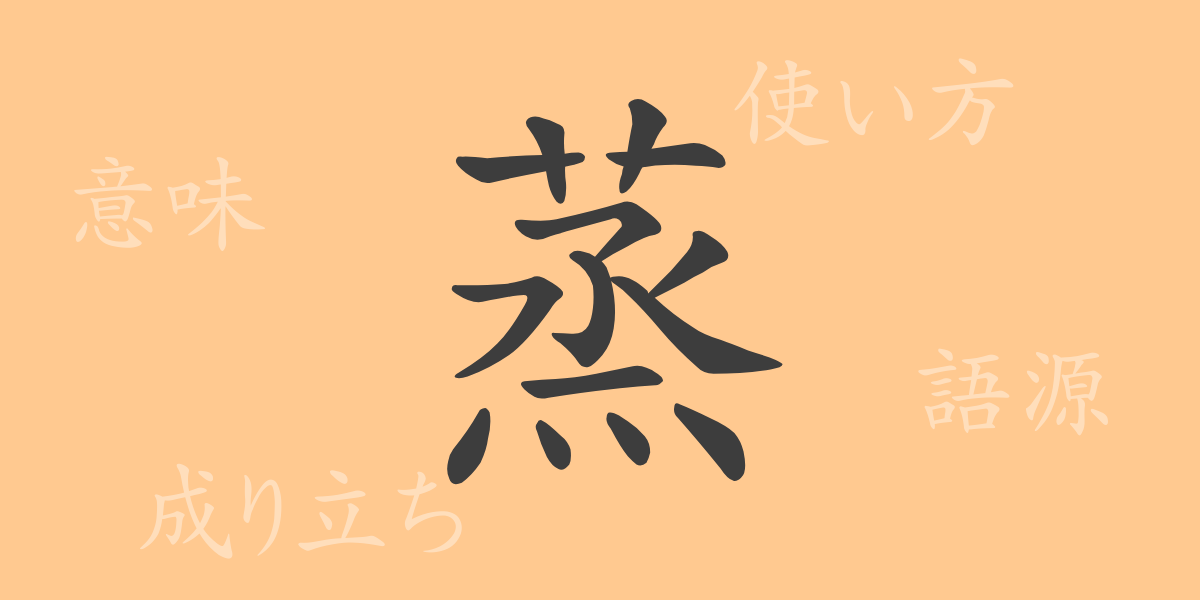The Japanese language boasts thousands of kanji, each with unique meanings and sounds. Among them, ‘蒸’ (じょう) is a commonly used character in daily life. This article delves into the origins, meanings, usage, readings, stroke count, and phrases of the kanji ‘蒸’, exploring the rich world it encapsulates.
Origins of 蒸 (じょう)
The kanji ‘蒸’ evolved from ancient Chinese pictographs. Originally, it depicted the act of evaporation under sunlight. Over time, it incorporated ‘艸’ (くさかんむり), symbolizing plants under the sun, and ‘氶’, denoting steam, forming the kanji ‘蒸’ as we know it, representing steaming or evaporation processes.
Meaning and Usage of 蒸
‘蒸’ primarily describes the transformation of water into vapor through heat, such as in ‘evaporation’ or describing humid conditions as ‘steamy’. It also refers to cooking methods that involve steaming food, and metaphorically, it can describe situations where something slowly becomes more intense, as in ‘rehashing’ an issue.
Readings, Stroke Count, and Radical of 蒸
The kanji ‘蒸’ has several readings and a rich structure:
- Readings: The on’yomi (おんよみ) is ‘ジョウ’, and the kun’yomi (くんよみ) are ‘む.す’, ‘む.れる’, ‘む.らす’.
- Stroke Count: ‘蒸’ has a total of 13 strokes.
- Radical: The radical is ‘艸’ (くさかんむり), associated with plants.
Phrases and Proverbs Using 蒸 and Their Meanings
There are many idioms and proverbs involving ‘蒸’, reflecting its importance in Japanese culture:
- 蒸気機関 (じょうききかん) – Steam engine, utilizing the power of steam to operate machinery.
- 蒸発する (じょうはつする) – To evaporate, or to disappear without a trace.
- 蒸し暑い (むしあつい) – Humid and hot.
- 蒸し返す (むしがえす) – To bring up old issues again, rehash.
- 蒸し焼きにする (むしやきにする) – To cook carefully to avoid burning, usually in a covered pan with a little liquid.
Conclusion on 蒸
The kanji ‘蒸’ is frequently used in everyday language, originating from natural phenomena and encompassing a wide range of meanings and applications. As seen in various phrases, idioms, and proverbs, ‘蒸’ plays a significant role in Japanese culture and language. This article hopefully provides a deeper understanding of the depth of ‘蒸’ and its applications.

























